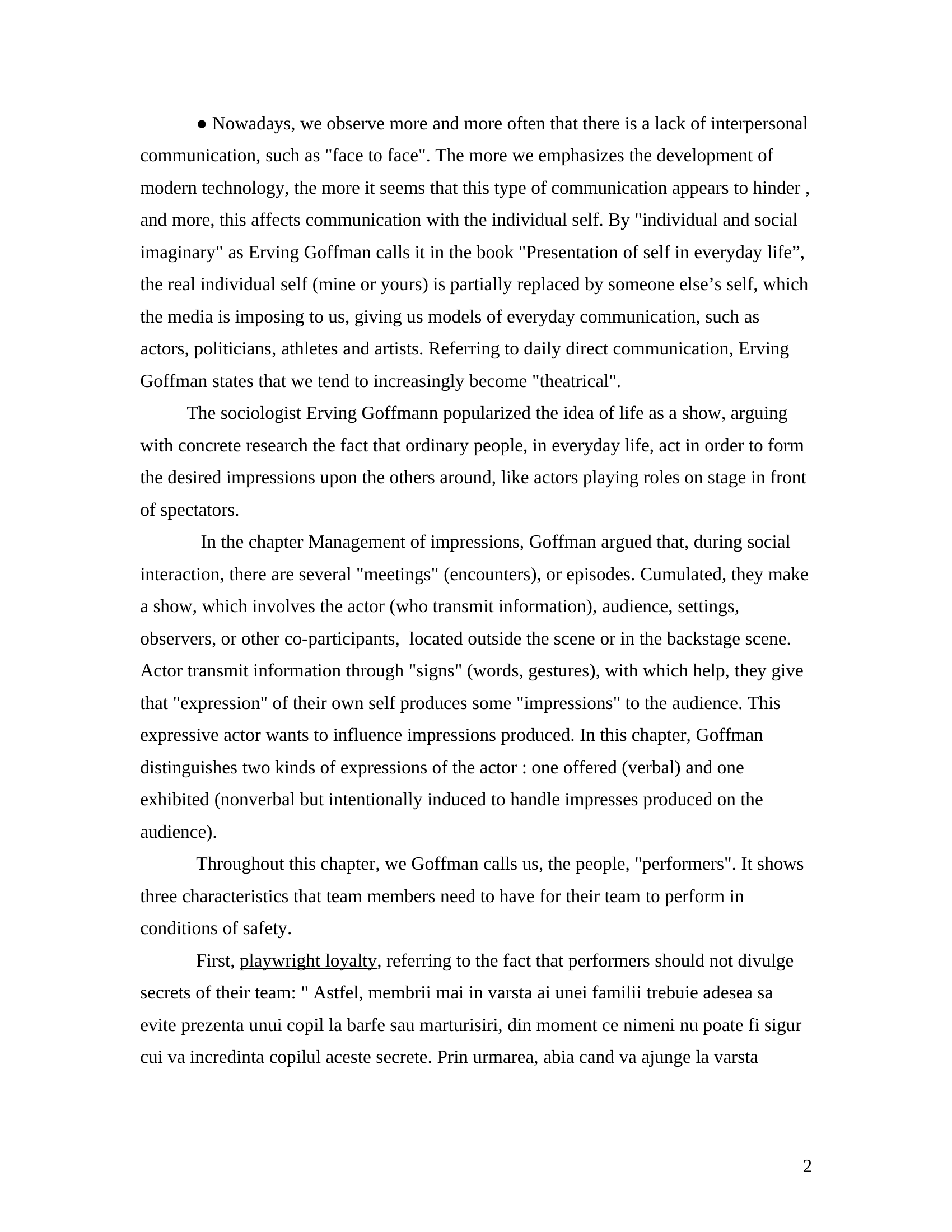Life - The Best Play Ever (Erving Goffmann)
Publié le 20/11/2012

Extrait du document
«
● Nowadays, we observe more and more often that there is a lack of interpersonal
communication, such as "face to face".
The more we emphasizes the development of
modern technology, the more it seems that this type of communication appears to hinder ,
and more, this affects communication with the individual self.
By "individual and social
imaginary" as Erving Goffman calls it in the book "Presentation of self in everyday life”,
the real individual self (mine or yours) is partially replaced by someone else’s self, which
the media is imposing to us, giving us models of everyday communication, such as
actors, politicians, athletes and artists.
Referring to daily direct communication, Erving
Goffman states that we tend to increasingly become "theatrical".
The sociologist Erving Goffmann popularized the idea of life as a show, arguing
with concrete research the fact that ordinary people, in everyday life, act in order to form
the desired impressions upon the others around, like actors playing roles on stage in front
of spectators.
In the chapter Management of impressions, Goffman argued that, during social
interaction, there are several "meetings" (encounters), or episodes.
Cumulated, they make
a show, which involves the actor (who transmit information), audience, settings,
observers, or other co-participants, located outside the scene or in the backstage scene.
Actor transmit information through "signs" (words, gestures), with which help, they give
that "expression" of their own self produces some "impressions" to the audience.
This
expressive actor wants to influence impressions produced.
In this chapter, Goffman
distinguishes two kinds of expressions of the actor : one offered (verbal) and one
exhibited (nonverbal but intentionally induced to handle impresses produced on the
audience).
Throughout this chapter, we Goffman calls us, the people, "performers".
It shows
three characteristics that team members need to have for their team to perform in
conditions of safety.
First, playwright loyalty , referring to the fact that performers should not divulge
secrets of their team: " Astfel, membrii mai in varsta ai unei familii trebuie adesea sa
evite prezenta unui copil la barfe sau marturisiri, din moment ce nimeni nu poate fi sigur
cui va incredinta copilul aceste secrete.
Prin urmarea, abia cand va ajunge la varsta
2.
»
↓↓↓ APERÇU DU DOCUMENT ↓↓↓
Liens utiles
- Ideology and Rationality in the History of the Life Sciences
- litterature.pdf : The play Macbeth was written by William shakespeare
- jeanneney: a life devoted to the state
- VIE ET L’œUVRE DE SIGMUND FREUD (La) [The Life and Work of Sigmund Freud]. (résumé)
- VIE DE SAMUEL JOHNSON [The Life of Samuel Johnson]. (résumé & analyse de l’oeuvre)


